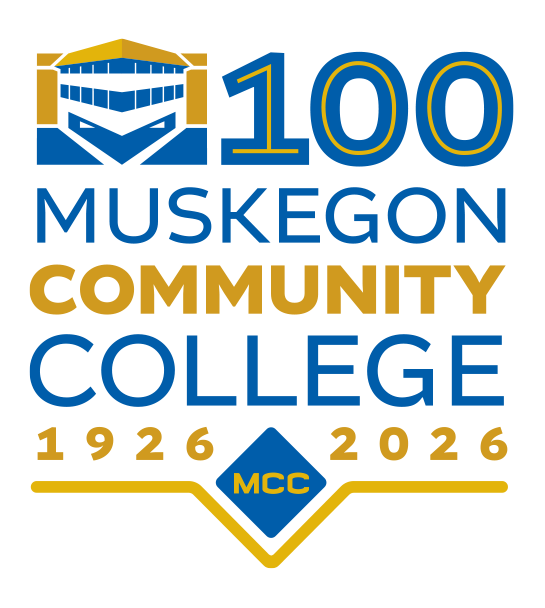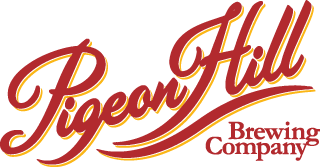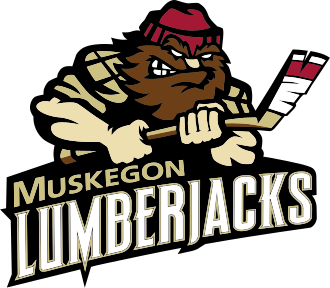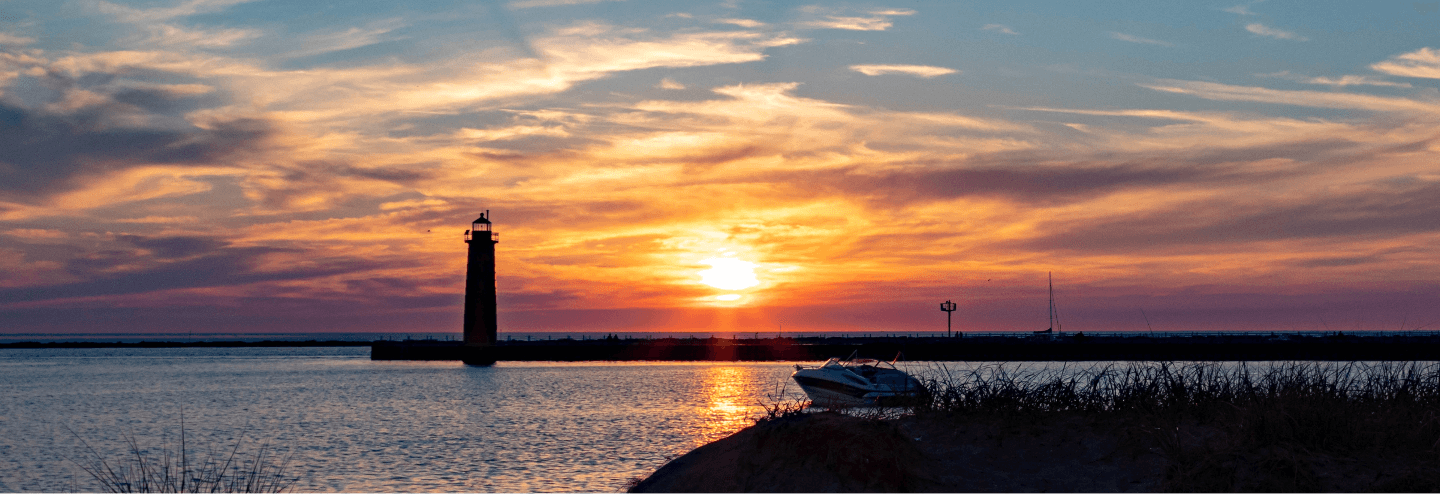MCC Centennial 1926 – 2026

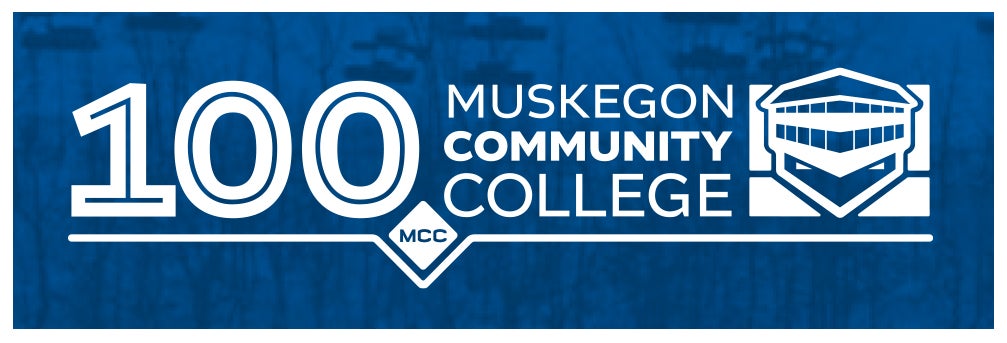
CENTENNIAL CELEBRATION
EVENT HIGHLIGHTS
|2025|
11/6-9
Play/MCC History Roadshow
11/11
Veterans Day Salute
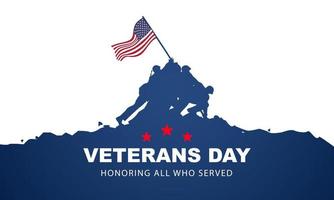
11/11
MCC on Tap at PHBC
CENTENNIAL CELEBRATION
EVENT HIGHLIGHTS
|2026|
1/29
Pecha Kucha
2/17
MCC on Tap at PHBC
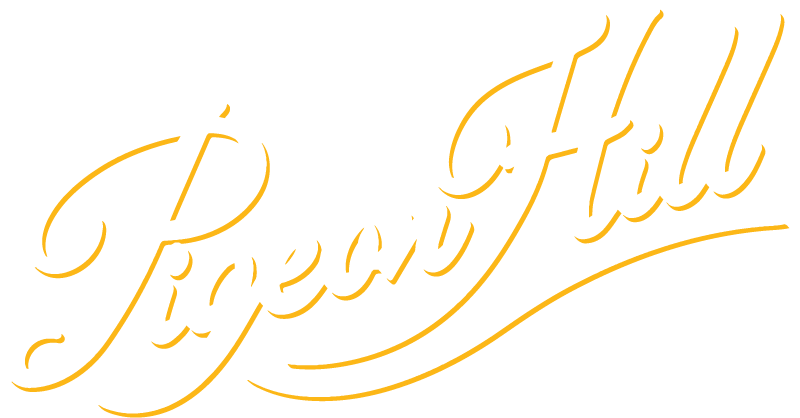
3/24
MCC on Tap at PHBC
3/26
Play/MCC History Roadshow

A Century of Excellence: MCC Turns 100
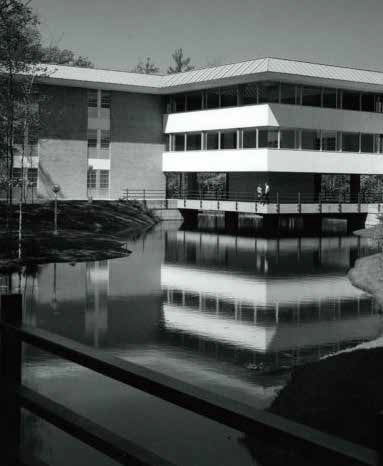
For a full century, Muskegon Community College has stood as a cornerstone of educational opportunity, economic development, and cultural enrichment for the Lakeshore region. What began in 1926 as Muskegon Junior College has grown into a student-focused, highly regarded economic engine driving the community forward.
As MCC celebrates its centennial, it will also re-commit its mission to build communities and improve lives for another 100 years and beyond. MCC is not just celebrating a history of success—it’s laying the foundation for its next century of impact.
___________________________________________
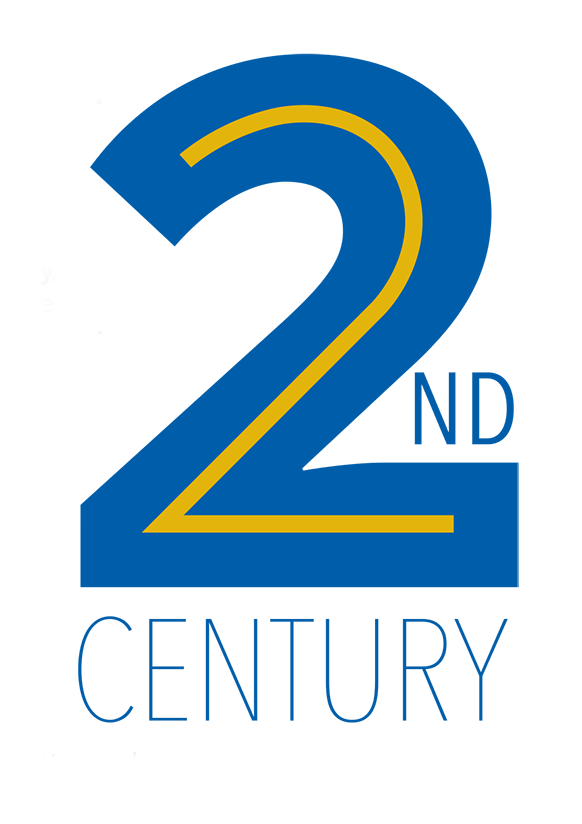
Looking Toward the Future: The Next 100 Years
As Muskegon Community College embarks on its second century, it remains dedicated to excellence, preparing our students, building our community, and improving lives.
For another 100 years, MCC will work toward ensuring the Lakeshore is an educated and thriving community, and lean heavily on our guiding values of learning, integrity, excellence, collaboration, and kindness.
With deep roots and an eye on the horizon, Muskegon Community College stands ready to shape the next generation with the same spirit that has guided it from the very beginning.
___________________________________________
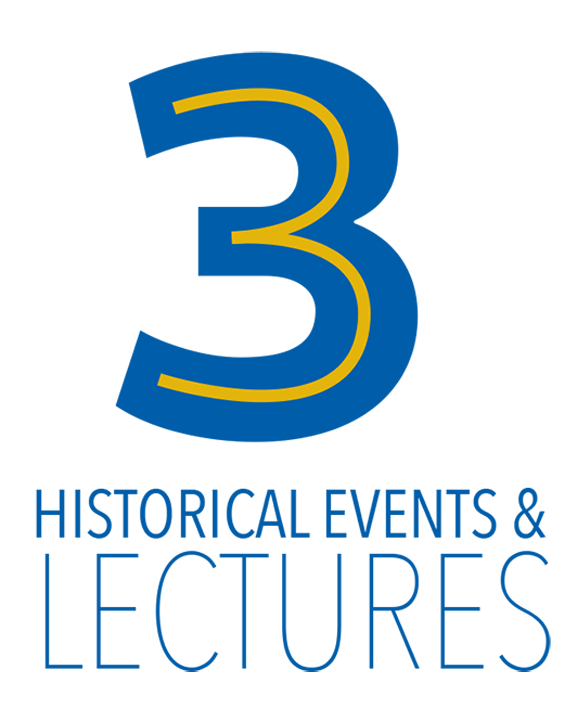
Turning 100: A Year of Celebration and Events
To commemorate the historic marker, Muskegon Community College is planning a yearlong series of events designed to bring together students, alumni, faculty, and community members in both reflection and celebration. The celebration will wrap up on June 20, 2026, with An Evening With MCC at the VanDyk Mortgage Convention Center.
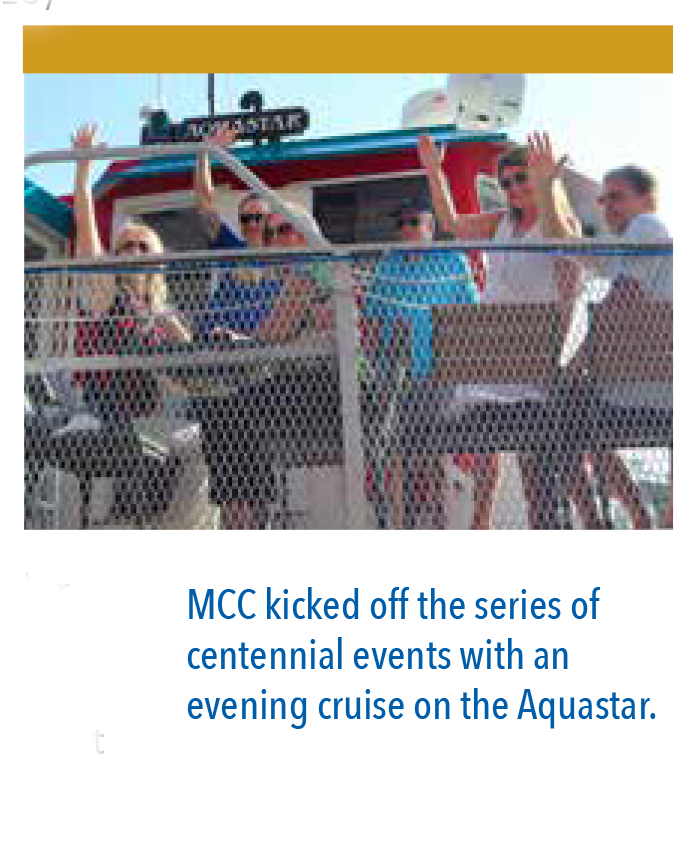
MCC will host three events that take a historic look at MCC’s legacy. The Founding of the Dream will highlight MCC through the years 1926-1959, The Bold Dream on Marquette and Quarterline will cover the years of 1960-1996, and The Expansion of the Dream will consider the year 1997 to the present. Other notable celebrations slated for the year are the MCC Blue and Gold Night with the Muskegon Lumberjacks, and sponsorship of the Muskegon Lakeshore Chamber of Commerce Business for Breakfast.
___________________________________________
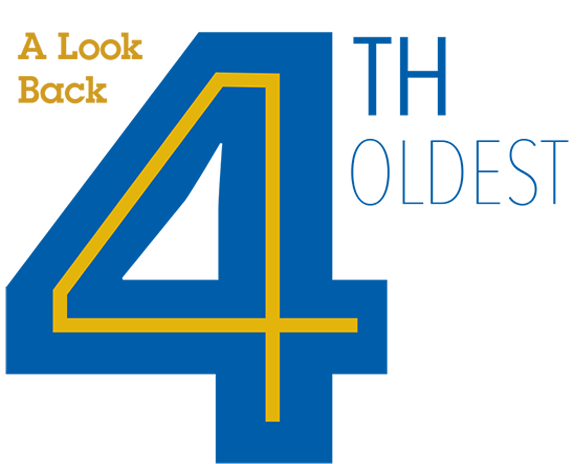
MCC is the fourth-oldest community college in Michigan
It started back in 1926 as Muskegon Junior College, operating inside Muskegon Senior High School. But soon, more students wanted to attend, and they quickly outgrew the space.
In 1934, the college moved to the former Hackley School, a building donated by local businessman Charles H. Hackley, located across from Hackley Park in downtown Muskegon. At first, the college mostly helped students who planned to transfer to four-year universities. But in 1951, its name was changed to Muskegon Community College to reflect its growing range of programs.
With deep roots and an eye on the horizon, Muskegon Community College stands ready to shape the next generation with the same spirit that has guided it from the very beginning.
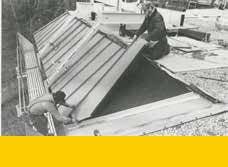
During the 1960s, the college grew even more. Over 2,000 students were enrolled, and classes were being held in many different buildings around town. A special committee of local citizens proposed making MCC its own independent college district and building a permanent campus. Voters approved the plan in 1963, and soon after, MCC got its own Board of Trustees and a new home.
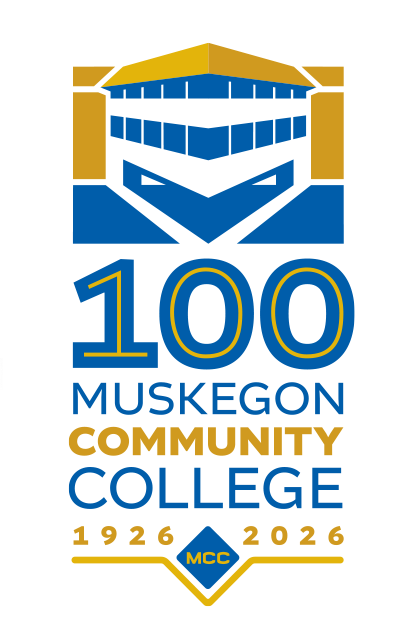
In the years that followed, MCC became a regional leader in education. In 1995, the Center for Higher Education opened, offering programs from partner universities like Ferris State, Grand Valley State, and Western Michigan. In 2006, the Hendrik Meijer Library and Information Technology Center brought Wi-Fi and modern library services to students and the public.
The 2010s brought even more improvements. Voters approved $24 million in funding, which helped MCC build a downtown campus, a high-tech Life Sciences building, and the Peter and Carolyn I. Sturrus Technology Center. In 2018, MCC added the Rooks-Sarnicola Entrepreneur Institute and a new Health and Wellness Center to support local business and community health.
MCC has also received national recognition. In 2017, BestColleges.com named it the top community college in Michigan. Its nursing programs continue to be highly ranked, and in 2023, MCC was again named an Achieving the Dream Leader College, recognizing its strong student support and success.
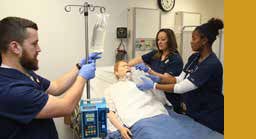
In 2024, MCC had the highest transfer rate in Michigan for students receiving federal aid—34%, well above the state and national averages. That same year, MCC and Grand Valley State University teamed up to launch an Associate Degree in Nursing to Bachelor of Science in Nursing Program to help meet the growing need for more academically advanced healthcare workers.
From one classroom in a high school to a well-respected, multi-campus institution, MCC has come a long way—always growing and always serving.
___________________________________________
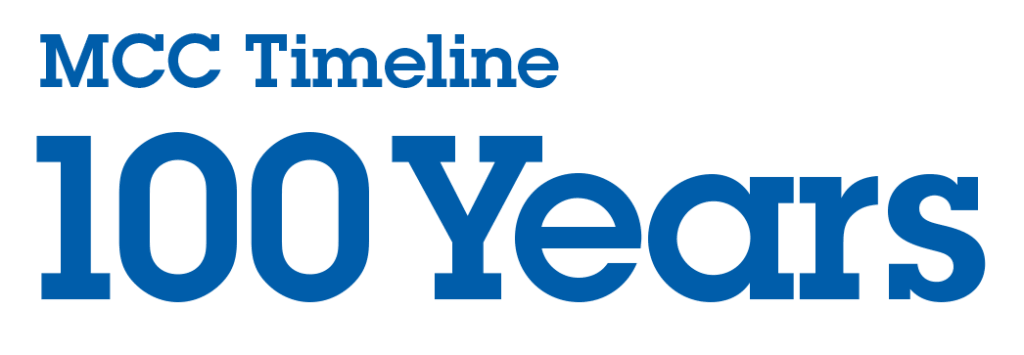
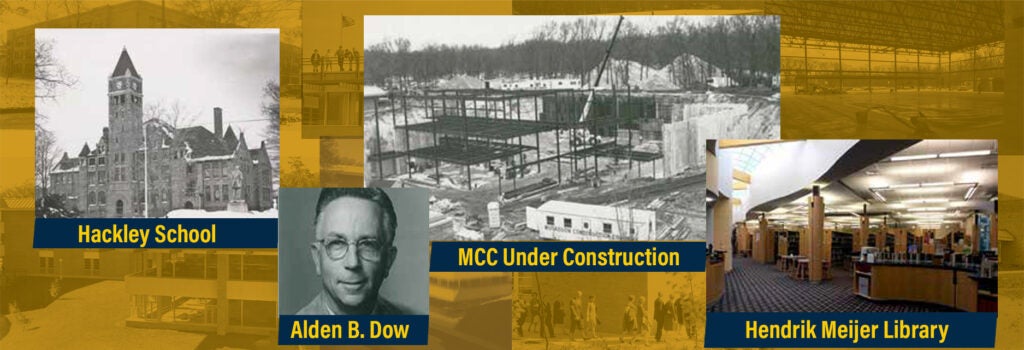
1926:
Muskegon Junior
College was established
1934:
College moved
into the former Hackley
School in downtown
Muskegon
1951:
Muskegon Junior
College renamed
Muskegon Community
College
1963:
MCC left oversight
of Muskegon Board of
Education
First Board of Trustees
was elected
Land was purchased
for dedicated college
building
Alden B. Dow &
Associates named as architect
1965:
Construction
began on new (current)
college building
1966:
Vocational
Technical Wing was completed and occupied
1967:
Dedication
ceremony on
October 22, entire
building was occupied
1968:
Frauenthal
Fine Arts Center was completed and occupied
1968:
University Park Golf Course opened
1995:
Center for Higher
Education/Stevenson
Center was opened. Housed programs and courses offered by Ferris State University, Grand Valley State University,
and Western Michigan
University
2006:
Hendrik Meijer
Library Information
Technology Center was
completed and occupied

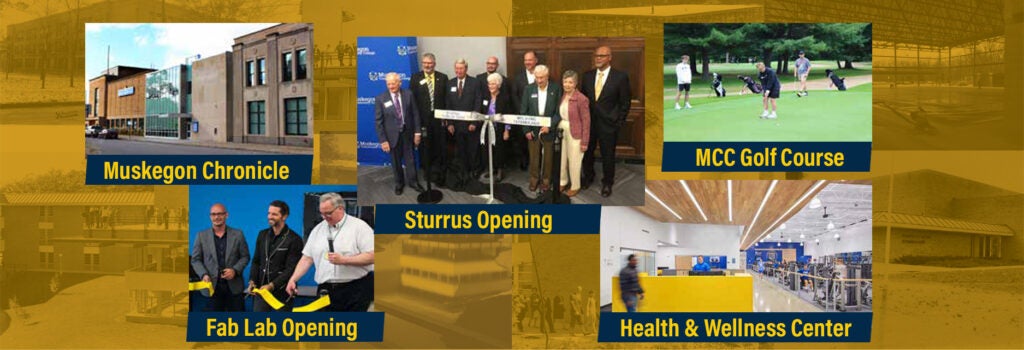
2014:
The Muskegon
Chronicle building
purchased to house applied technology
programs and
experiential learning
program
2015:
Masonic Temple
donated to MCC by Nick Sarnicola
Science Center opened and is home to the Life Science Department
MCC Purchased
Muskegon Family YMCA West Western Ave property
2016:
MCC Lakeshore
Fitness Center opened
2017:
Peter & Carolyn I. Sturrus
Technology Center opened, formerly The Muskegon Chronicle
2018:
Rooks-Sarnicola
Entrepreneur Institute
opened and houses the
Lakeshore Fab Lab
2019:
Health and
Wellness Center opened on main campus
MCC Art & Music
Building re-opened after
remodel
MCC Ottawa Center opened
2021:
Boys & Girls Club of the Muskegon Lakeshore purchases the Lakeshore Fitness Center
2022:
Consumers Energy STEM Lab opened
2025:
University Park
Golf Course renamed to
Muskegon Community
College Golf Course
